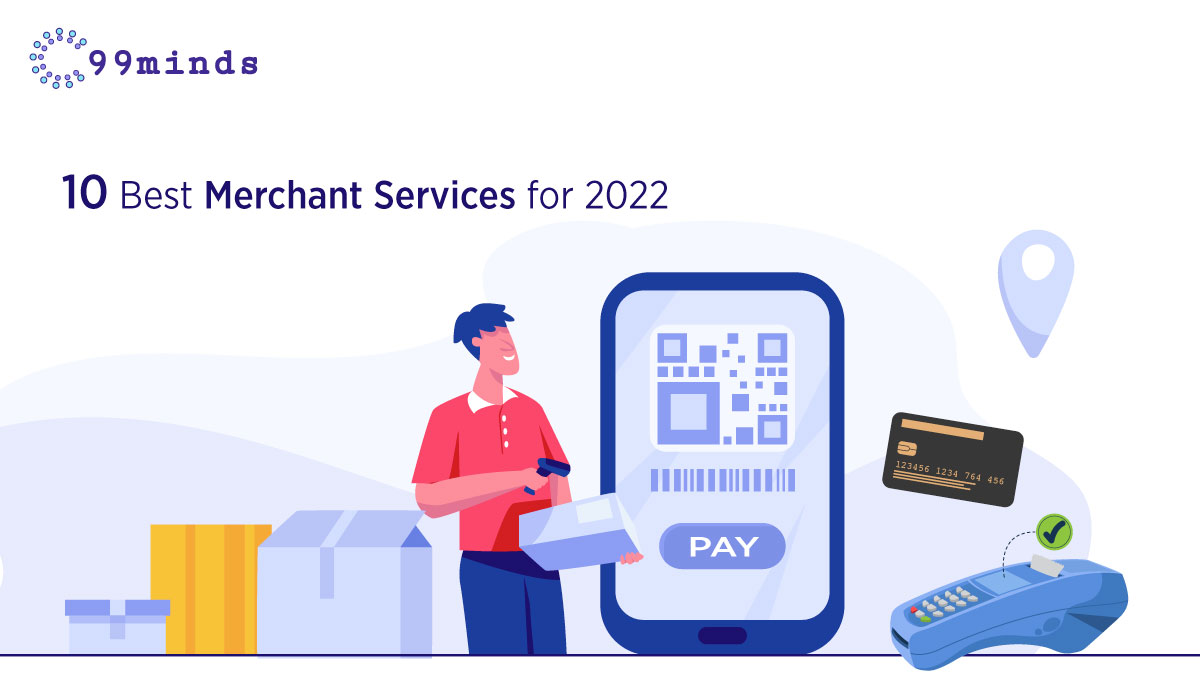
Getting the right merchant service provider can be the difference between offering convenient options for customers and missing out on sales. Covid-19 has increased the reliance on contactless payment options, and by late 2020, 50% of Americans started using contactless payment methods.
Let us look at the 10 best merchant services for 2022:
It is a digital payments company that has a flat-rate pricing model. They charge 2.6% plus 10 cents per in-person transaction, 3.5% plus 15 cents per keyed transaction and 2.9% plus 30 cents per online transaction.
Some of the best things about Block are as follows:
Their service has been available since 2014. Stax’ subscription-based pricing structure saves high-volume businesses a lot of money in potential transaction costs. It differentiates itself from its competitors with a 0% markup on Interchange fees.
Stax is great for mid-size businesses and enterprises. Membership businesses and eCommerce stores will also find the service pretty useful. They pride itself on their transparent pricing. Their customers claim that they save an average of 40% on transaction fees alone.
If you do business exceeding $500,000, you can reach out to Stax to get custom pricing. Otherwise, transaction fees are 8 cents plus Interchange on card-present transactions, and 15 cents plus Interchange on keyed-in and online transactions. This pricing is for businesses processing up to $500,000 per year.
Here are some of the best things about Stax:
Designed especially for small businesses, Helcim makes it easy to accept debit/credit cards in-person, online, and more. It is possible to set up recurring payments, collect and send payments across the world with Helcim’s virtual terminal.
If you use Helcim’s card reader, it accepts JCB, Apple, Google Pay, Amex, Discover, Mastercard, Visa, Amex, and more. Their card readers allow swipe, dip, tap, and chip payments.
Since Payment Depot doesn’t pass off the credit card fees at a markup price, businesses will end up saving a lot of money. If you are doing high volumes, then opting their most expensive plan will give you the lowest transaction fees. It is no wonder that Payment Depot is called the “Costco of credit card processing” because of its reputation and reliability.
It is easily the best merchant service provider for businesses that are considered high-risk. If your application is rejected by most service providers because of the risky nature of your business, you might want to give PaymentCloud a chance. Some examples of high-risk industries are: adult businesses, tobacco, firearms, electronic cigarettes, diet programs, bail bonds, and dating services.
No matter how you want to pay, online, in-person, or on-the-go, they have solutions for all your needs. The setup process is simple, all you need to do is to fill out a form, choose your payment gateway, and start processing credit cards.

Trusted by more than 25,000+ merchants, Flagship has a wide range of payment processing solutions that accepts payments in-store, via mobile, online, and MOTO (mail order and telephone order). If you open your business account with them, you are eligible to get a free equipment- an EMV certified terminal or a Clover Mini POS. Apart from payment processing services, Flagship also offers cash advances to merchants.
Considered one of the best online payment processing software, Stripe services millions of companies. Stripe is made for internet companies, especially for eCommerce businesses. Online store owners can completely customize the checkout experience. There are pre-built integrations to connect to Stripe checkout. It is not the easiest to setup, so you might need a developer to get the work done. You can also configure your subscriptions, recurring billing, and one-time payments for different checkout needs.
For those who love the QuickBooks ecosystem, they will not hesitate to use this payment processing tool. You can easily process online, in-person, and invoiced transactions. They provide volume discounts for businesses processing more than $7,500 monthly. QuickBooks also provides invoicing tools where you can designate multiple accounts for deposits.
One of the most popular merchant service for startups, PayPal serves more than 17 million businesses. It’s known for its features such as fraud protection and risk modeling. They offer a variety of payment methods, including in-store credits and mobile. PayPal is well suited for companies that have a lower volume of transactions. Their advanced options include a merchant account, Point of Sale (POS) features, and functionality, that is available for an extra fee. Despite the litany of features that it offers, PayPal’s hefty transaction fees does it no favor.
They are best suited for small businesses that are looking for a basic setup. National Processing has been in existence since 2007. It provides credit card processing, ACH, and electronic check payment options. It is interesting to note that they donate more than 10% of its profits to charity. There are specific plans based on the industry that you choose. If it can’t match deals from competitors, they don’t charge termination fees.
You can save thousands of dollars by choosing the right merchant service provider for your business. When you choose one, make sure that they are easy to use, offer great value, integrate with popular software, and is the right one for you. The fees should be transparent, reliable, and should not confuse you. Hope you are closer to finding your payment processing software after reading this article.